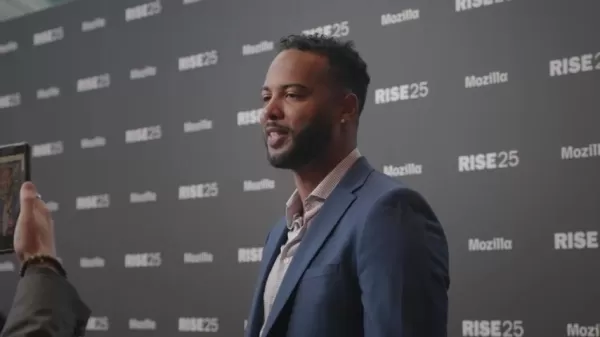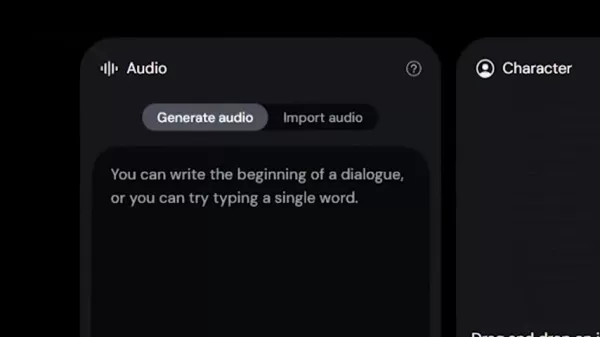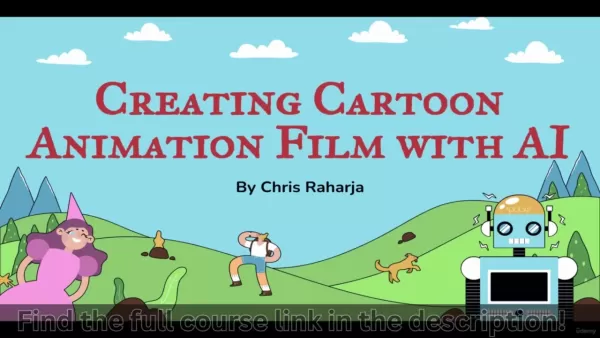AI Ethics Challenges: Balancing Art, Culture, and Technological Progress
Artificial intelligence is fundamentally reshaping modern society, impacting everything from creative arts to technological ethics. This examination delves into how apprehension and progress coexist in our AI-driven era, highlighting the critical importance of safeguarding cultural heritage while actively guiding emerging innovations toward equitable and responsible development.
Key Points
The legitimate concerns surrounding AI shouldn't stifle technological advancement.
Adaptation is inevitable as technological transformation continues with or without our participation.
Active involvement in discussions about AI ethics is absolutely essential.
Cultural preservation and ethical frameworks must guide technological adoption.
AI development requires inclusive participation from diverse fields and perspectives.
Emerging technologies present unprecedented opportunities for cultural documentation and global representation.
Initiatives like Mozilla Rise 25 celebrate pioneers advancing responsible AI through open-source solutions.
The Intersection of Fear and Exploration in AI
Balancing Concern with Progress
The rapid advancement of artificial intelligence has understandably generated significant apprehension regarding employment impacts, systemic biases, and potential misuse. While these concerns warrant serious attention, we must ensure they don't impede careful examination of AI's transformative capabilities. At this pivotal technological juncture, we have both the responsibility and opportunity to steer AI's evolution toward beneficial applications that serve humanity's best interests.

The path forward requires nuanced understanding - acknowledging genuine risks while cultivating AI's positive potential. Today's choices will shape artificial intelligence's long-term societal impact.
The Inevitability of Technological Progress
Technological advancement progresses inexorably, with artificial intelligence now touching nearly every aspect of contemporary life. Resistance ultimately proves futile. Our most productive approach involves proactive engagement - mastering emerging tools, understanding their mechanisms, and thoughtfully considering their implications.
Expanding the AI Dialogue
Shaping AI's future cannot remain the exclusive domain of technologists and corporations. A broad coalition including ethicists, creatives, policymakers, and citizens must contribute to these crucial discussions. This inclusive approach fosters technological development aligned with diverse values and shared societal benefits.
Spotlight on Manuel Sainsily: AI Artist and Ethical Innovator
Bridging Art and Ethics
Manuel Sainsily's groundbreaking work exemplifies constructive engagement with emerging technologies. As an experienced TED speaker, XR instructor, and visionary artist collaborating with industry leaders like OpenAI and Meta, he creates immersive experiences integrating ethical considerations with cutting-edge innovation.

Through his artistic practice, Sainsily demonstrates how creative expression can spark essential conversations about AI's societal implications, championing responsible development alongside technological possibility.
Ethics and Heritage at the Core
Sainsily's practice places ethical responsibility and cultural preservation at its foundation, challenging creators to consider technology's broader impacts while highlighting AI's potential to document and share global cultural narratives.

Early Inspiration Through IBM Watson
Sainsily's exploratory journey with AI began in 2017 through IBM Watson, revealing machine learning's transformative potential across industries while crystallizing his commitment to ethical technology development.

How to Engage Ethically with AI
Prioritizing Inclusive Development
Sainsily emphasizes the fundamental importance of incorporating diverse viewpoints throughout AI's evolution. Inclusive participation helps mitigate bias and ensures technological solutions address varied human needs.

AI in Cultural and Technological Applications
Strengths
Expands creative possibilities
Enhances productivity
Increases accessibility
Supports heritage preservation
Facilitates global collaboration
Challenges
Ethical dilemmas
Economic disruption
Privacy concerns
Over-reliance risks
Misinformation potential
AI Core Features Highlighted
Revolutionary Content Creation
Tools like OpenAI's Sora demonstrate AI's capacity to transform text prompts into sophisticated visual narratives, democratizing video production capabilities.

The Imperative of Ethical Development
Technologists bear profound responsibility in shaping AI systems that prioritize societal welfare alongside innovation.

AI Use Cases in Art, Culture and Technology
Innovative Artistic Expression
Sainsily's work illustrates AI's potential to create deeply engaging experiential art that transcends traditional mediums.
Cultural Documentation and Empowerment
Emerging technologies provide powerful tools for preserving heritage and amplifying underrepresented voices.

Frequently Asked Questions
How can individuals participate in ethical AI development?
Public engagement through discussions, policy advocacy, and support for responsible organizations helps shape AI's trajectory, while education empowers informed contributions.
What role do artists play in AI's evolution?
Artists serve as critical explorers of creative potential and ethical boundaries, using their work to stimulate essential dialogue about technology's societal role.
How does AI support cultural preservation?
By providing accessible tools for heritage documentation and storytelling, AI helps maintain cultural diversity and enables authentic representation.
Related Questions
What are AI's primary ethical challenges?
Key concerns include algorithmic bias, data privacy, workforce impacts, autonomous systems, and potential misuse - requiring comprehensive ethical frameworks and safeguards.
How can AI promote inclusive societies?
Thoughtfully designed AI applications can reduce hiring bias, customize education, and enhance accessibility when developed with diversity and transparency as foundational principles.
Related article
 How to Make AI Singing Avatars Easily: Complete Beginner's Guide
Artificial intelligence is revolutionizing digital content creation, particularly through AI-powered singing avatars that deliver remarkably lifelike performances. With intuitive platforms like Hedra AI, anyone can now craft custom digital performers
How to Make AI Singing Avatars Easily: Complete Beginner's Guide
Artificial intelligence is revolutionizing digital content creation, particularly through AI-powered singing avatars that deliver remarkably lifelike performances. With intuitive platforms like Hedra AI, anyone can now craft custom digital performers
 Last Chance: Save $1,130 on TechCrunch Disrupt 2025 Passes - Ends Soon
Final Countdown: Save Up to $1,130 on TechCrunch Disrupt 2025 TicketsTime is running out! Only 72 hours remain to secure your discounted pass for TechCrunch Disrupt 2025 with potential savings reaching $1,130. Individual passes and group bundles (off
Last Chance: Save $1,130 on TechCrunch Disrupt 2025 Passes - Ends Soon
Final Countdown: Save Up to $1,130 on TechCrunch Disrupt 2025 TicketsTime is running out! Only 72 hours remain to secure your discounted pass for TechCrunch Disrupt 2025 with potential savings reaching $1,130. Individual passes and group bundles (off
 AI Revolutionizes Animated Film Production: The Ultimate Guide
The digital era has made AI-powered cartoon animation more accessible than ever. This complete guide covers every step of bringing animated films to life with AI - from concept development to character animation and monetization strategies. Whether y
Comments (0)
0/200
AI Revolutionizes Animated Film Production: The Ultimate Guide
The digital era has made AI-powered cartoon animation more accessible than ever. This complete guide covers every step of bringing animated films to life with AI - from concept development to character animation and monetization strategies. Whether y
Comments (0)
0/200
Artificial intelligence is fundamentally reshaping modern society, impacting everything from creative arts to technological ethics. This examination delves into how apprehension and progress coexist in our AI-driven era, highlighting the critical importance of safeguarding cultural heritage while actively guiding emerging innovations toward equitable and responsible development.
Key Points
The legitimate concerns surrounding AI shouldn't stifle technological advancement.
Adaptation is inevitable as technological transformation continues with or without our participation.
Active involvement in discussions about AI ethics is absolutely essential.
Cultural preservation and ethical frameworks must guide technological adoption.
AI development requires inclusive participation from diverse fields and perspectives.
Emerging technologies present unprecedented opportunities for cultural documentation and global representation.
Initiatives like Mozilla Rise 25 celebrate pioneers advancing responsible AI through open-source solutions.
The Intersection of Fear and Exploration in AI
Balancing Concern with Progress
The rapid advancement of artificial intelligence has understandably generated significant apprehension regarding employment impacts, systemic biases, and potential misuse. While these concerns warrant serious attention, we must ensure they don't impede careful examination of AI's transformative capabilities. At this pivotal technological juncture, we have both the responsibility and opportunity to steer AI's evolution toward beneficial applications that serve humanity's best interests.

The path forward requires nuanced understanding - acknowledging genuine risks while cultivating AI's positive potential. Today's choices will shape artificial intelligence's long-term societal impact.
The Inevitability of Technological Progress
Technological advancement progresses inexorably, with artificial intelligence now touching nearly every aspect of contemporary life. Resistance ultimately proves futile. Our most productive approach involves proactive engagement - mastering emerging tools, understanding their mechanisms, and thoughtfully considering their implications.
Expanding the AI Dialogue
Shaping AI's future cannot remain the exclusive domain of technologists and corporations. A broad coalition including ethicists, creatives, policymakers, and citizens must contribute to these crucial discussions. This inclusive approach fosters technological development aligned with diverse values and shared societal benefits.
Spotlight on Manuel Sainsily: AI Artist and Ethical Innovator
Bridging Art and Ethics
Manuel Sainsily's groundbreaking work exemplifies constructive engagement with emerging technologies. As an experienced TED speaker, XR instructor, and visionary artist collaborating with industry leaders like OpenAI and Meta, he creates immersive experiences integrating ethical considerations with cutting-edge innovation.

Through his artistic practice, Sainsily demonstrates how creative expression can spark essential conversations about AI's societal implications, championing responsible development alongside technological possibility.
Ethics and Heritage at the Core
Sainsily's practice places ethical responsibility and cultural preservation at its foundation, challenging creators to consider technology's broader impacts while highlighting AI's potential to document and share global cultural narratives.

Early Inspiration Through IBM Watson
Sainsily's exploratory journey with AI began in 2017 through IBM Watson, revealing machine learning's transformative potential across industries while crystallizing his commitment to ethical technology development.

How to Engage Ethically with AI
Prioritizing Inclusive Development
Sainsily emphasizes the fundamental importance of incorporating diverse viewpoints throughout AI's evolution. Inclusive participation helps mitigate bias and ensures technological solutions address varied human needs.

AI in Cultural and Technological Applications
Strengths
Expands creative possibilities
Enhances productivity
Increases accessibility
Supports heritage preservation
Facilitates global collaboration
Challenges
Ethical dilemmas
Economic disruption
Privacy concerns
Over-reliance risks
Misinformation potential
AI Core Features Highlighted
Revolutionary Content Creation
Tools like OpenAI's Sora demonstrate AI's capacity to transform text prompts into sophisticated visual narratives, democratizing video production capabilities.

The Imperative of Ethical Development
Technologists bear profound responsibility in shaping AI systems that prioritize societal welfare alongside innovation.

AI Use Cases in Art, Culture and Technology
Innovative Artistic Expression
Sainsily's work illustrates AI's potential to create deeply engaging experiential art that transcends traditional mediums.
Cultural Documentation and Empowerment
Emerging technologies provide powerful tools for preserving heritage and amplifying underrepresented voices.

Frequently Asked Questions
How can individuals participate in ethical AI development?
Public engagement through discussions, policy advocacy, and support for responsible organizations helps shape AI's trajectory, while education empowers informed contributions.
What role do artists play in AI's evolution?
Artists serve as critical explorers of creative potential and ethical boundaries, using their work to stimulate essential dialogue about technology's societal role.
How does AI support cultural preservation?
By providing accessible tools for heritage documentation and storytelling, AI helps maintain cultural diversity and enables authentic representation.
Related Questions
What are AI's primary ethical challenges?
Key concerns include algorithmic bias, data privacy, workforce impacts, autonomous systems, and potential misuse - requiring comprehensive ethical frameworks and safeguards.
How can AI promote inclusive societies?
Thoughtfully designed AI applications can reduce hiring bias, customize education, and enhance accessibility when developed with diversity and transparency as foundational principles.
 How to Make AI Singing Avatars Easily: Complete Beginner's Guide
Artificial intelligence is revolutionizing digital content creation, particularly through AI-powered singing avatars that deliver remarkably lifelike performances. With intuitive platforms like Hedra AI, anyone can now craft custom digital performers
How to Make AI Singing Avatars Easily: Complete Beginner's Guide
Artificial intelligence is revolutionizing digital content creation, particularly through AI-powered singing avatars that deliver remarkably lifelike performances. With intuitive platforms like Hedra AI, anyone can now craft custom digital performers
 Last Chance: Save $1,130 on TechCrunch Disrupt 2025 Passes - Ends Soon
Final Countdown: Save Up to $1,130 on TechCrunch Disrupt 2025 TicketsTime is running out! Only 72 hours remain to secure your discounted pass for TechCrunch Disrupt 2025 with potential savings reaching $1,130. Individual passes and group bundles (off
Last Chance: Save $1,130 on TechCrunch Disrupt 2025 Passes - Ends Soon
Final Countdown: Save Up to $1,130 on TechCrunch Disrupt 2025 TicketsTime is running out! Only 72 hours remain to secure your discounted pass for TechCrunch Disrupt 2025 with potential savings reaching $1,130. Individual passes and group bundles (off
 AI Revolutionizes Animated Film Production: The Ultimate Guide
The digital era has made AI-powered cartoon animation more accessible than ever. This complete guide covers every step of bringing animated films to life with AI - from concept development to character animation and monetization strategies. Whether y
AI Revolutionizes Animated Film Production: The Ultimate Guide
The digital era has made AI-powered cartoon animation more accessible than ever. This complete guide covers every step of bringing animated films to life with AI - from concept development to character animation and monetization strategies. Whether y





























